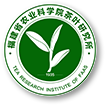Abstract:
Objective Effect of fertilizer applications on soil acidification at tea plantations was studied for an improved and sustainable agriculture.
Method From 2013 to 2021, 17 tea plantations in Zhouning County, Fujian were classified according to whether they had been using inorganic chemicals, combined organic and inorganic fertilizers in varied ratios, or exclusively animal manure for fertilization. Soil acidity on the lands were monitored.
Result During the period, the average pH in 0-20 cm and 20-40 cm soil layers at the plantations fertilized with chemicals decreased 0.26 and 0.24 with the annual acidifying rates of 0.033 and 0.030, respectively. Meanwhile, the sites applied both organic and inorganic fertilizers had the pH increased 0.19 and 0.20 with the annual rates of 0.024 and 0.025, respectively, while those utilized only manure rose 0.39 and 0.23 at the annual rates of 0.048 and 0.028, respectively. It appeared that organic fertilization mitigated acidification, and the rate of pH lowering from the practice did not significantly alter the basic physicochemical properties of the initial soil.
Conclusion The 3 commonly applied fertilizations at tea plantations differed in the effect on soil acidity. Chemical nitrogen accelerated the acidification, and thus, the application must be stringently controlled. On the other hand, partial or exclusive use of organic fertilizers augmented pH and could effectively facilitate soil conservation.




 下载:
下载: